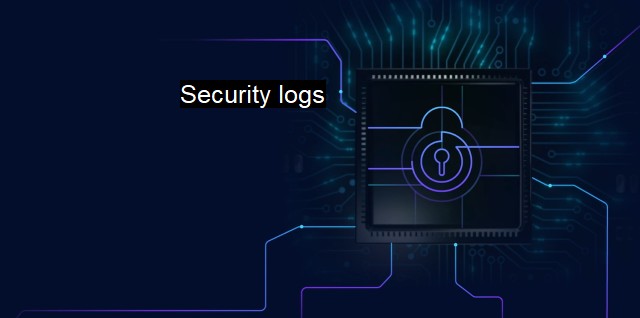What are Security logs?
The Vital Role of Security Logs in Cybersecurity: Understanding, Analysis, and Importance in Antivirus Software
Security logs are essential components that play a critical role in maintaining the health and integrity of a computer system or network. They serve as one of the core facets in managing the security of modern computer infrastructures, mainly because they provide vital information about activities and events happening in the system.Security logs are essentially digital records of the multitude of events occurring within a computer system, network, operating system, or the applications running on them. This includes, but is not limited to, failed and successful log-on attempts, changes made to security settings, network connections, or even changes performed to files and system configurations. anything that can potentially affect the confidentiality, integrity, or availability of a system falls under the purview of security logs.
The diligent recording and monitoring of security logs are a crucial part of cybersecurity and information protection strategies. They primarily function under the precautionary principle - predicting threats and identifying deviations before real damage happens. Gaps in security or unauthorised activities often leave distinct digital footprints in the security logs that experienced cybersecurity professionals can trace. This helps in identifying the cause, tracing the source, and sometimes even predicting the likelihood of future security incidences.
In relation to antivirus software, security logs are a repository of actions taken by these protective systems. They document the antivirus' attempts to ward off or neutralise any threats to the system and their outcomes, thereby offering feedback on the effectiveness of the measures in place. It also encompasses the details of potential malware detected, alerts of suspicious activities, scans summaries, and actions taken to isolate, delete or quarantine the offending files or process.
Through a chronological narration of what transpired in the system, these logs also enable cybersecurity experts to analyse breaches, vulnerabilities and reactions post-incident, thereby serving as a learning tool for improving future security measures and examining patterns in the behaviour in past threats. Often, such a post-mortem analysis offers the clearest insight into how an attacker or an attack operated or how effective the installed defense line was.
While the importance of security logs is undeniable, their efficacy lies in a systematic and continual evaluation. This means the potential volume of this recorded data can be vast, often making manual analysis intimidating and time-consuming. Herein lies the importance of log management tools and Security Information and Event Management (SIEM) systems, which automate the collection, storage, analysis and reporting of security logs.
These automated systems utilise sophisticated algorithms and machine learning algorithms to sift through the massive amounts of data to detect patterns, abnormalities or discrepancies. SIEM systems not only streamline the extraction of meaningful insights from security logs but also facilitate real-time analysis and alerts, considerably closing the gap between logging an event and responding to it effectively.
Security logs are the comprehensive guard dogs of the cybersecurity world, silent observers and recorders of every minuscule and substantial shift within a system. In antivirus scenarios, they constitute the first line of defence against malicious activities and software. their utility is wholly unlocked when coupled with strategic evaluation and reaction systems, highlighting the critical harmony between log creation and log utilisation in ensuring robust cybersecurity.

Security logs FAQs
What are security logs?
Security logs are records generated by security systems and applications to keep track of system events and user activities. These logs may contain information such as login attempts, system errors, firewall activity, virus scans, and more.Why are security logs important in cybersecurity?
Security logs play a critical role in cybersecurity as they enable organizations to detect and investigate security incidents, monitor compliance with regulatory requirements, and identify potential vulnerabilities and threats. Without security logs, it can be difficult to determine when and how a security incident occurred.How do antivirus software use security logs?
Antivirus software uses security logs to monitor system activity and detect malicious activity. When antivirus software detects malware, it logs the event, such as which file was infected, the type of malware, and the method of infection. This information can be used to remove the malware, identify the source of the infection, and prevent future attacks.What are some best practices for managing security logs?
Some best practices for managing security logs include regularly reviewing and analyzing log data, setting up alerts for specific events, limiting access to log data to authorized personnel, and regularly backing up log files. It is also important to ensure that log data is stored securely to prevent unauthorized access or tampering.| | A | | | B | | | C | | | D | | | E | | | F | | | G | | | H | | | I | | | J | | | K | | | L | | | M | |
| | N | | | O | | | P | | | Q | | | R | | | S | | | T | | | U | | | V | | | W | | | X | | | Y | | | Z | |
| | 1 | | | 2 | | | 3 | | | 4 | | | 7 | | | 8 | | |||||||